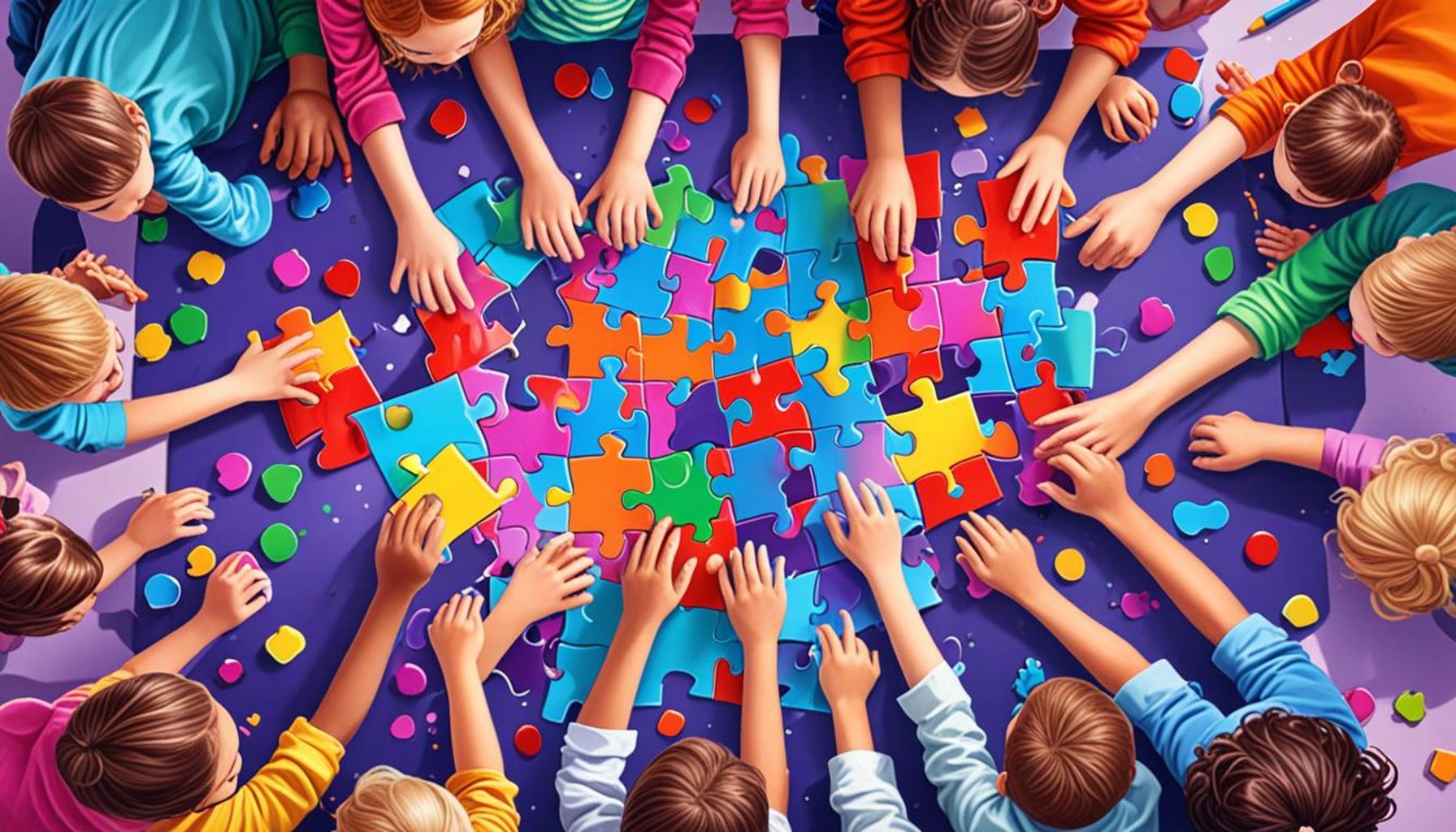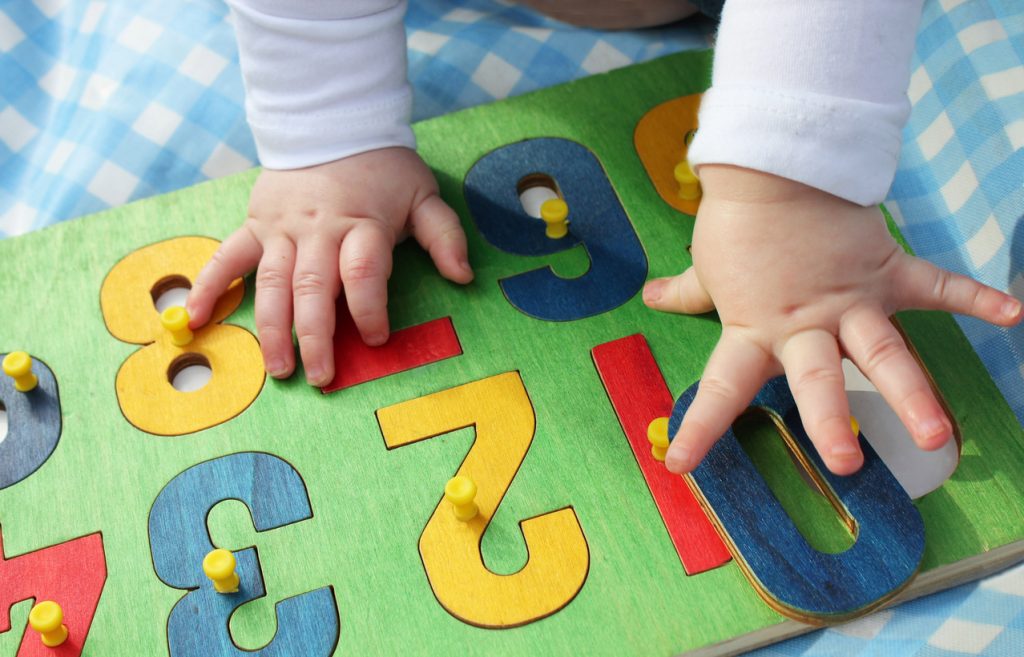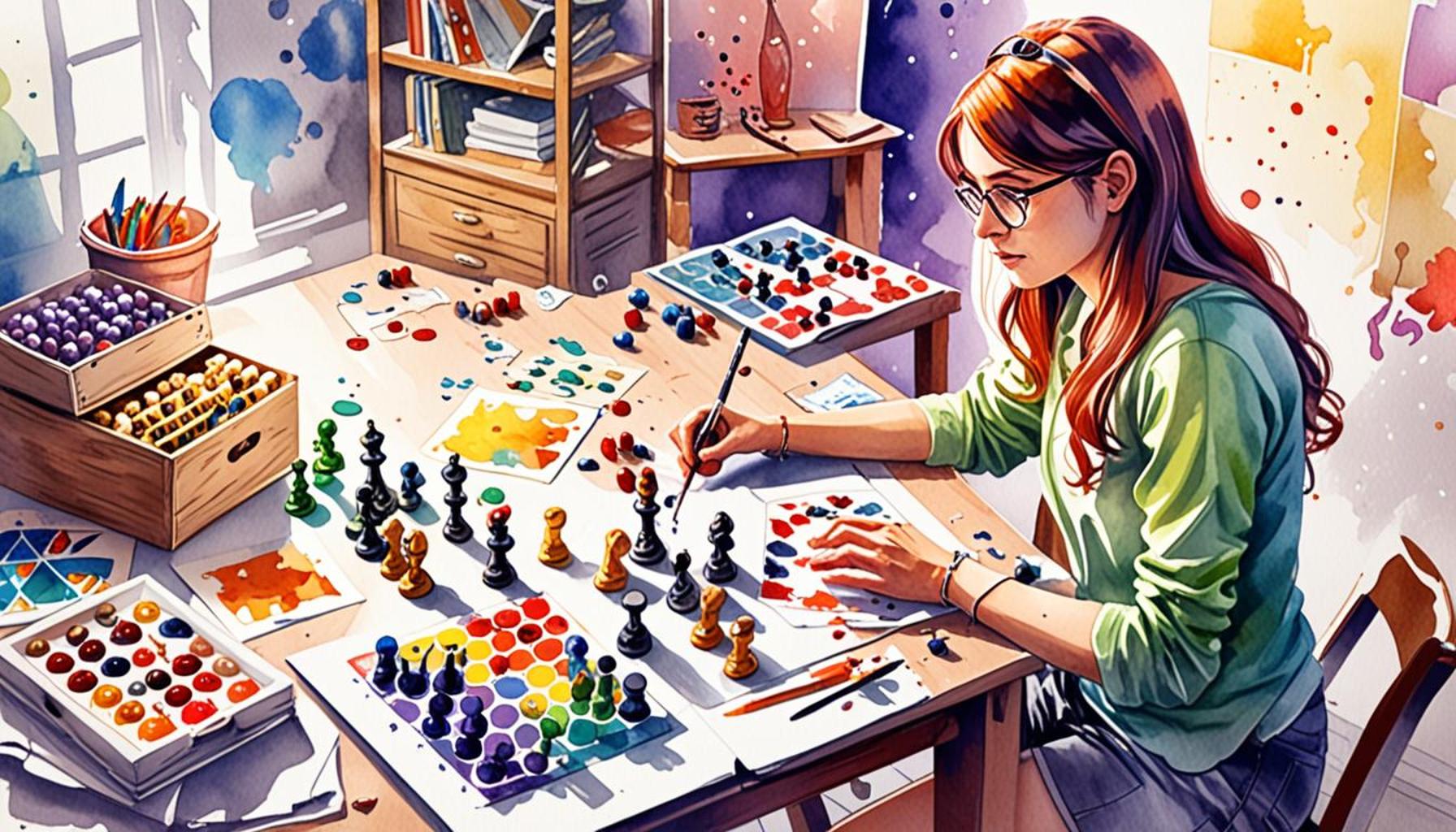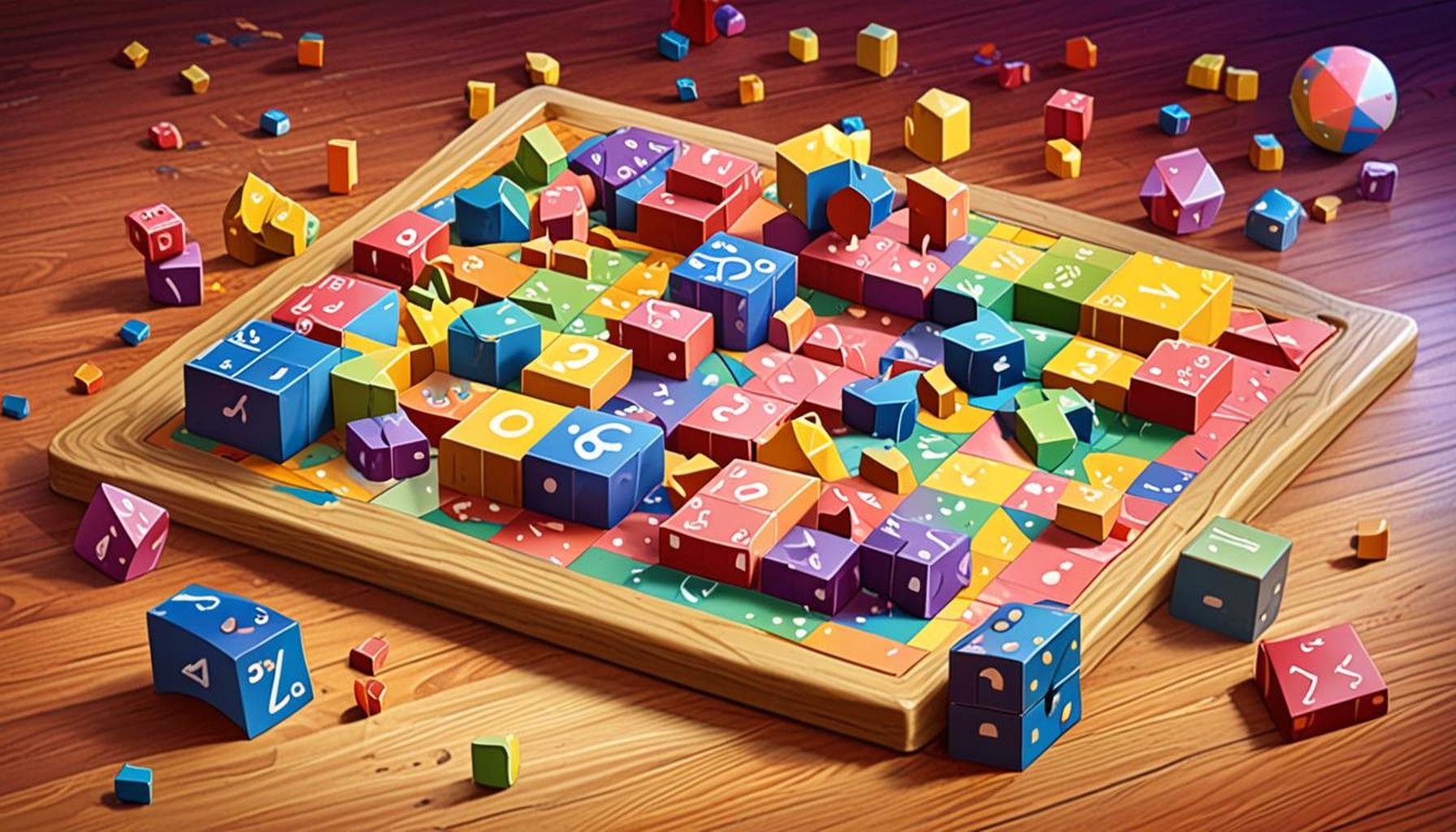The Effect of Group Puzzle Games on the Development of Collaboration and Communication in Children

The Power of Collaborative Gameplay in Child Development
In today’s rapidly evolving world, the ability to collaborate and communicate effectively is more crucial than ever before. Group puzzle games serve as a dynamic tool to foster these essential skills in children. Engaging in these activities not only entertains but also enhances social interactions among peers. The incorporation of group puzzles—be they physical jigsaw puzzles, escape room challenges, or digital co-op games—provides an enjoyable platform for young minds to learn and thrive together.
Benefits of Group Puzzle Games
- Enhances Problem-Solving Skills: Through collaborative efforts, children develop strategic thinking as they encounter various challenges. For instance, while working on a complex jigsaw puzzle, each participant can contribute unique insights on how to approach the task. Such collective strategizing enables kids to dissect problems into manageable parts and evaluate multiple solutions, fostering critical thinking.
- Promotes Teamwork: Group puzzle games encourage children to collaborate, share ideas, and embrace diverse perspectives. An example of this is seen in classroom activities where students work on building a model or solving a challenging brainteaser. This cooperation cultivates a sense of belonging and understanding, crucial for developing interpersonal relationships.
- Improves Communication: Clear communication becomes vital as children explain their thoughts and approaches to one another. When they engage in discussions about strategies or solutions, they practice articulating their ideas and listening effectively—a skill that benefits them across all areas of life, from academics to future workplaces.
Research indicates that children who regularly participate in collaborative games exhibit greater social competence. For example, studies have shown that children who engage in group play are better at navigating social norms, managing conflicts, and exhibiting leadership qualities. Furthermore, these experiences allow kids to practice empathy, enabling them to appreciate and respect diverse opinions. When challenges arise, they learn how collective brainstorming can lead to innovative solutions, thereby reinforcing the idea that teamwork can yield better results than solitary efforts.
As children navigate through difficulties together, they build not only lasting friendships but also essential life skills that will serve them well into adulthood.
Exploring Further
By diving deeper into the world of group puzzle games, we unlock a wealth of potential for development. These engaging activities play a pivotal role in shaping effective communicators and collaborators among the upcoming generation. Insights from educational research underscore the link between play and learning, highlighting ways parents, educators, and caregivers can leverage these interactions for enhanced outcomes. In particular, stimulating environments that utilize group puzzles can lead to improved academic performance, emotional intelligence, and resilience against challenges encountered both in and out of the classroom.
In a world increasingly reliant on teamwork and social interaction, understanding the profound impact of collaborative play is vital. By embracing the power of group puzzle games, we can equip our children with the necessary tools to thrive, significantly influencing their future interactions and successes.

DIVE DEEPER: Click here to uncover more insights
Unpacking the Mechanisms of Collaborative Learning
The fascinating world of group puzzle games serves as a vital bridge connecting children to enhanced collaboration and communication skills. These games are not just play; they provide a structured environment where children can engage in social learning through shared goals and challenges. As they work towards solving puzzles together, children inherently develop a framework for understanding and practicing essential interpersonal skills.
One of the most significant outcomes of group puzzle activities is the shift in a child’s natural behavior when interacting with peers. Consider an instance where a group of children comes together to solve a 500-piece jigsaw puzzle. Each child brings their unique approaches and strategies, which can lead to meaningful dialogues about placement techniques, color matching, and spatial awareness. This collaborative distraction fosters an atmosphere of enthusiasm, where children feel encouraged to express their thoughts. Consequently, the adorable chaos of discussions leads to the emergence of essential communication habits.
Key Elements of Collaborative Skills Development
Group puzzle games cultivate a variety of skills, but a few key elements stand out in the realm of collaboration and communication:
- Active Listening: To successfully navigate a group puzzle, children must learn to listen to their peers’ input. This ability to actively listen not only validates each voice in the grouping but also encourages consideration of diverse perspectives, promoting teamwork.
- Articulation of Ideas: Children engage in verbal exchanges, demonstrating their thought processes as they discuss potential solutions or strategies. This aspect of communication allows them to practice expressing their ideas clearly and confidently, which is crucial both in social settings and in academic environments.
- Conflict Resolution: Disagreements may arise when children have differing opinions on how to solve a puzzle. Such instances provide valuable opportunities for children to learn how to resolve conflicts amicably, helping them cultivate essential negotiation skills.
- Social Awareness: Engaging in group puzzles helps children recognize social cues and dynamics. They learn to navigate the unspoken rules of cooperation, such as taking turns and acknowledging contributions from all team members.
This involvement in group activities directly correlates with improved self-esteem and confidence. Research shows that children who partake in cooperative gameplay exhibit stronger interpersonal relations, which boost their willingness to engage with a diverse group of peers. As they build friendships, the social fabric of collaboration becomes intricately woven, allowing them to understand the value of shared achievements.
Moreover, educational settings benefit significantly from integrating group puzzle games into their curriculum. Teachers report that classrooms enriched with collaborative play experiences show notable increases in student engagement and improved academic performance. When children enjoy the process of solving puzzles together, they become invested in their learning journey and are more motivated to conquer future academic challenges.
In essence, the simple act of piecing together a puzzle not only entertains children but unleashes a wealth of developmental opportunities. By nurturing collaboration and communication through these engaging activities, we equip children with vital skills they will carry throughout their lives.
The Impact of Group Puzzle Games on Language Development
One of the most intriguing effects of group puzzle games is their ability to enhance language development among children. When children engage in solving puzzles together, they often find themselves discussing strategies and expressing their thoughts aloud. This verbal exchange not only fosters vocabulary growth but also improves their ability to articulate ideas. For instance, children learn to describe shapes, colors, and patterns while communicating their approach to the task at hand.Moreover, as they navigate challenges together, children often employ language for negotiation and persuasion. This process encourages them to develop essential communication skills, such as listening actively and responding thoughtfully. A study published in the *Journal of Child Psychology* found that children participating in group activities, including puzzles, displayed significant advancements in both their expressive and receptive language skills.
Cultivating Problem-Solving Abilities
Group puzzle games also play a critical role in shaping children’s problem-solving abilities. Collaborating on a puzzle encourages critical thinking as children must evaluate different strategies, adapt to new information, and collectively arrive at a solution. This dynamic environment simulates real-life scenarios where cooperation and innovative solutions are essential.A notable benefit arises from witnessing various thought processes in action. As children work together to tackle a puzzle, they observe diverse approaches to problem-solving. This exposure often inspires them to think outside the box and notice connections in ways they may not have considered individually. Early exposure to such collaborative problem-solving not only enhances academic performance but also primes children for future group projects and teamwork.
Fostering Emotional Connections
In addition to improving cognitive skills, group puzzle games also facilitate emotional connections among children. The shared experience of collaboration tends to create a bond between participants, making it easier for them to empathize with one another and celebrate collective achievements. Research indicates that children who engage regularly in cooperative play are more likely to develop strong friendships, which can contribute positively to their emotional well-being.The sense of accomplishment gained from successfully completing a puzzle as a team can strengthen their self-esteem and encourage them to take on further collaborative challenges in the future. These social-emotional skills learned through play echoes throughout their development, yielding benefits both in and out of the classroom.
Encouraging Inclusivity
Finally, group puzzle games serve as an avenue for fostering inclusivity among children. As these games often appeal to a wide range of interests and abilities, every child can find their role within the group, whether they excel in spatial reasoning or possess strong communication skills. This inclusivity helps children to appreciate diversity in learning styles, encouraging acceptance and respect for differences.Collaborative play, especially in multi-age groups, also promotes mentorship, where older or more skilled children guide younger or less experienced peers, enriching the overall learning experience. This kind of environment nurtures a growth mindset—an essential quality for lifelong learning—allowing children to thrive in diverse social and educational settings.The multifaceted benefits of group puzzle games extend far beyond pure entertainment. By influencing communication, problem-solving, emotional bonds, and inclusivity, these activities contribute significantly to childhood development, paving the way for future social and academic success.
DIVE DEEPER: Click here to uncover the connection
Fostering Cognitive Skills Through Teamwork
As children engage with group puzzle games, they not only enhance their interpersonal skills but also experience substantial growth in their cognitive development. The cognitive demands of puzzles require children to utilize critical thinking, problem-solving, and strategic planning skills, which naturally dovetail with their developing communication and collaboration abilities. By approaching challenges together, kids learn to share their thought processes, thus transforming abstract concepts into actionable strategies.
Research underscores the correlation between collaborative gameplay and heightened cognitive functioning. For instance, a study conducted by the University of California highlighted that children who participated in collaborative activities demonstrated a 20% improvement in problem-solving skills compared to those who worked alone. Such findings illuminate why group puzzle games are lauded by educators as effective learning tools. By working collectively, children can brainstorm solutions and challenge each other’s ideas, fostering a richer grasp of the concepts involved.
Real-world Applications and Future Advantages
The skills nurtured through group puzzle games extend beyond the immediate setting of play. For many children, these experiences serve as a precursor to real-world scenarios where effective communication and teamwork are indispensable. As budding social navigators, they learn to articulate their thoughts in a way that is comprehensible and engaging to their peers. This ability is crucial, whether they are collaborating on a school project or participating in sports teams.
Moreover, participating in these interactive puzzles also links to improved emotional intelligence. Children learn to gauge their peers’ emotional responses and modify their communication accordingly. They become aware of how their contributions affect others, illuminating the connection between emotional awareness and social interaction.
- Interpersonal Communication: By expressing thoughts and strategies aloud, children develop their capacity to convey complex ideas succinctly, a skill that translates well into everyday situations and future professional environments.
- Team Dynamics: Engaging with peers provides insights into team dynamics, teaching the importance of roles, collective responsibility, and the benefits of shared leadership—an invaluable asset in adulthood.
- Creativity and Innovation: The collaborative nature of puzzle games encourages children to think creatively. The blend of varying perspectives often leads to innovative solutions, enhancing their ability to think outside the box.
Additionally, studies show that children who regularly engage in group activities tend to demonstrate greater resilience. They learn to tackle setbacks together, fostering a supportive environment that allows them to navigate challenges without fear of failure. This nurtures a growth mindset, where mistakes become learning opportunities rather than discouraging obstacles.
Notably, the shift towards a more collaborative educational paradigm in the United States has amplified the role of these games in instructional strategies. Schools have started to implement cooperative learning models that incorporate puzzles as tools to engage students actively. Such an environment not only promotes academic success but also prepares children for a collaborative workforce.
In the rapidly evolving landscape of education, group puzzle games emerge as poignant teaching tools, reinforcing the significance of collaboration and communication while simultaneously empowering children with the cognitive tools they need for lifelong success.
DIVE DEEPER: Click here to learn more about visual therapy and stress relief
Conclusion: The Lasting Impact of Collaborative Engagement
In summary, the role of group puzzle games in the development of collaboration and communication skills in children cannot be overstated. Through engaging with these interactive challenges, children are equipped with essential skills that extend far beyond the realm of play. They learn to articulate their thoughts, both clearly and compellingly, while also honing their ability to listen to and integrate others’ ideas. This dynamic interaction cultivates not only their cognitive function but also their emotional intelligence, setting the stage for success in various social contexts.
The evidence suggests that children who immerse themselves in cooperative gameplay exhibit improved problem-solving skills, creativity, and resilience. As they navigate challenges together, they build a foundation of teamwork that will serve them well in school, extracurricular activities, and future workplaces. The implications are significant, particularly in today’s collaborative educational settings, where teamwork is increasingly valued and emphasized.
With ongoing shifts towards more cooperative learning frameworks in U.S. schools, the integration of group puzzle games offers a viable avenue for nurturing essential life skills. This educational trend not only enhances academic performance but also prepares children to thrive in a collaborative workforce. As such, fostering an environment that encourages the participation in group puzzle games is not just beneficial—it is imperative for nurturing well-rounded, communicative, and collaborative individuals.
Ultimately, parents, educators, and community leaders should embrace group puzzle games as powerful tools in shaping the collaborative capabilities of future generations, ensuring they are well-equipped to tackle the complexities of the world ahead.


